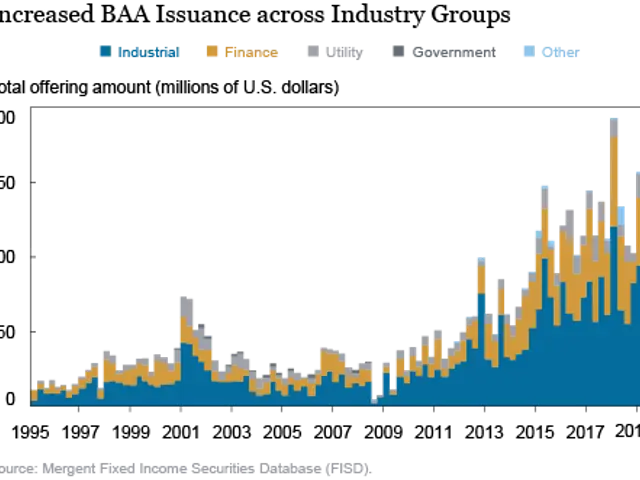Anti-Ukrainian Misinformation Ads Propagated on Facebook by Russian Entities Aimed at Poland
Threat of Pro-Russian Disinformation Ahead of European Elections, Particularly in Poland
In a troubling development, Poland finds itself in the crosshairs of a deluge of pro-Russian disinformation on Facebook. These ads, designed to sow discord and spread anti-Ukrainian and anti-European Union sentiments, were exposed by Politico, highlighting the growing challenge of combating disinformation on social media platforms.
Based on research by non-profit groups AI Forensics and CheckFirst, approximately 275 sponsored posts containing disinformation reached over 3 million Facebook users in France, Germany, Italy, and Poland in May. The goal? To undermine Ukraine and its military support, propagating narratives that smeared the country, called into question the legitimacy of the aid provided, and aimed to destabilize the region.
"Our resilience to disinformation will be put to the test during the European elections," said Veře Jourová, Vice-President of the European Commission, in an interview with the Polish Press Agency (PAP). This notion is magnified by the European Commission’s investigation into these disinformation campaigns which began a month ago.
The false advertisements employed a variety of tactics to reach their intended audience. In Poland, ads carried messages like, "We're used to reports of constant thefts in Ukraine, but sometimes the cynicism of Ukrainian thieves surprises us." In Italy, nine fake accounts peddled ads claiming that Ukrainian conflict spending compromised Italy’s future. These accounts even exploited a 2014 photo of a job queue in Madrid, misrepresenting it as a depiction of current economic woes attributed to Ukraine aid.
"The flood of illegal ads that violate platform rules should serve as a wake-up call for Meta and regulatory bodies to rigorously enforce existing laws," said Amaury Lesplingart, co-founder of CheckFirst. Despite Facebook’s policies requiring advertisers to provide official identification and limit promotions to their home country, the enforcement appears lax. Researchers found that over 65% of political and social issue ads went unlabeled in 16 EU countries, and Meta removed fewer than 5% of these ads.
Meta has challenged the researchers’ findings, particularly their definitions of political ads and their failure to account for ads blocked pre-publication. European Commission spokesperson Thomas Regnier, however, declined to comment on ongoing proceedings against Meta.
This wave of ads is a stark reminder of the persistent threat posed by Russian disinformation efforts, especially with the EU on the brink of crucial elections. The ads' dissemination across major European countries suggests a broader strategy to destabilize the region and weaken support for Ukraine.
As the EU grapples with these challenges, the consensus between regulatory bodies and social media platforms will be crucial in countering disinformation and protecting the integrity of the electoral process.
The battle against disinformation on social media has intensified, particularly with Russia's use of these platforms to sway public opinion and influence political outcomes. The sophistication and reach of these campaigns cite the urgency for robust systems to detect and neutralize such threats. This wave of ads targeting Poland and other EU countries underscores the necessity for coordinated efforts to strengthen cybersecurity and information integrity.
Stay Informed on News from Poland:
Sign up for our weekly news recap to stay updated on the latest happenings in Poland. You get a summary every Saturday, and we promise not to spam you! Confirm your subscription by checking your inbox or spam folder.
Related Topics: European Elections, News, Poland, Russia
- The growing challenge of combating disinformation on social media platforms, such as Facebook, is evident, as proven by the recent pro-Russian disinformation campaigns aimed at undermining Ukraine in Poland.
- The latest research by AI Forensics and CheckFirst reveals that approximately 275 sponsored posts containing disinformation reached over 3 million Facebook users in several European countries.
- In the wake of the European elections, Vice-President of the European Commission, Veře Jourová, expressed concern that the resilience to disinformation will be tested.
- The disinformation campaigns employ various tactics, including anti-Ukrainian and anti-European Union sentiments, aimed at destabilizing the region and smearing Ukraine's image.
- Amaury Lesplingart, co-founder of CheckFirst, stated that the flood of illegal ads, which often violate platform rules, serves as a wake-up call for Meta and regulatory bodies to intensify enforcement of existing laws.
- While Meta disputes the researchers' findings, the European Commission is investigating these disinformation campaigns and has yet to publicly comment on the ongoing proceedings against Meta.
- The persistent threat of Russian disinformation efforts is underscored by the ads' dissemination across major European countries, suggesting a broader strategy to destabilize the region and weaken support for Ukraine.
- As the EU faces these challenges, it is crucial for cybersecurity safeguards to protect the integrity of elections and counter disinformation, emphasizing the necessity for coordinated efforts among regulatory bodies and social media platforms in policymaking and legislation related to disinformation.








